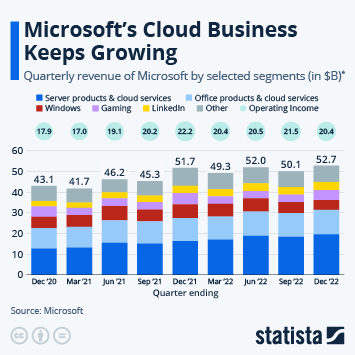In a bid to challenge Google's search engine dominance, Microsoft announced the integration of OpenAI's GPT-4 language model into its Bing search engine in February. Now, the new Bing aims to become a competitive search engine in another regard: advertising. This Wednesday, Microsoft's corporate vice president Yusuf Mehdi announced that the company will start integrating ads into its AI-powered chatbot slash search engine. The details are still murky since there are no clear guidelines on how ads will be prioritized in the bot's answers or how the concrete business model will look. As our chart based on Statista Market Insights data shows, the United States remained the prime market for search advertising in 2022.
Spend on sponsored links, keyword ads and Search Engine Advertising was especially high on mobile, with an estimated $67.3 billion spent on advertising rolled out on mobile devices like smartphones or tablets. Out of the six biggest markets by ad spend, only marketers from the U.S. and China put an increased focus on mobile platforms. In the People's Republic, 68 percent of the total search advertising marketing budget was allocated to mobile ads, while U.S. marketers invested 58 percent of their spending in this category. Ad spend in other major economies like Germany and Japan seems minuscule in comparison, with both markets staying below the $10 billion mark in total.
While Google's parent Alphabet has just announced the launch of a new transparency initiative enabling users to search a database of campaigns launched by verified Google advertisers, Mark Zuckerberg's Meta is pondering scrapping one category of ads altogether. The European Commission is currently preparing a law that requires large providers to disclose exactly who is behind political ads and the corresponding target audience. According to insider information obtained by the Financial Times, this development prompted the social media company to think about banning political ads altogether due to the vague definitions of what constitutes political advertising found in the draft. As of now, this internal information can not be corroborated.





















